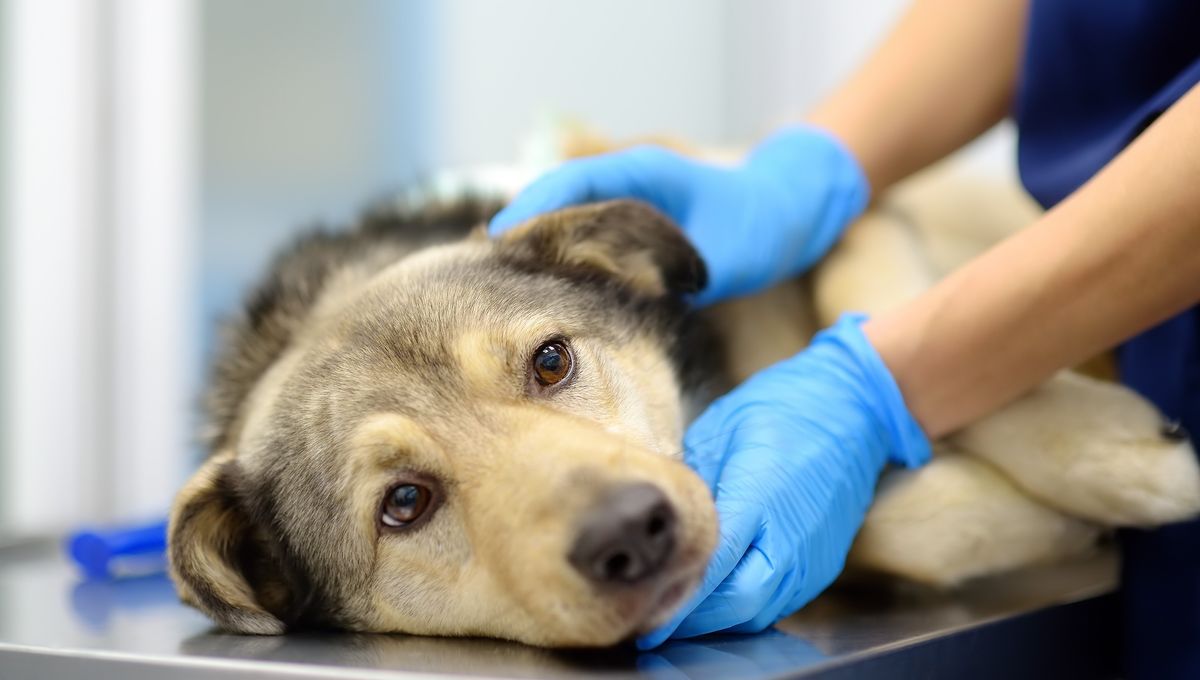
A new mRNA vaccine candidate for aggressive brain cancer has shown promise in a small clinical trial – but it was a clinical trial with a twist. As well as testing the vaccine in a handful of human cancer patients, the researchers are also leveraging results from 10 pet dogs.
It’s very typical for drugs and treatments destined for human use to be trialed in animals first. Often, this stage of proceedings will come after experiments in cells in the lab, and before the drug gets near any human volunteers. While many efforts are underway to reduce animal testing and replace it with alternatives, it’s still a mainstay of pharmaceutical research.
Usually, though, we’re not actually trying to treat the animals for a disease they picked up naturally. Scientists develop models in species with organ systems that resemble the human equivalent, using drugs, surgery, or genetic modification to mimic the human disease.
In the case of this mRNA vaccine, that part was completed in mice. But then there was another, more unusual step. It so happens that dogs are the only nonhuman species prone to the development of spontaneous brain tumors, so they offer an opportunity to test treatments in a more “natural” setting.
The owners of 10 pet dogs gave permission for their pooches to take part. This type of cancer, a glioma, is universally fatal, so this trial was the only treatment option available to them. Compared with the usual average survival time of 30-60 days after a diagnosis, the dogs lived for a median 139 days after their vaccine – time for lots more treats and belly rubs.
After positive results in both the mice and the dogs, the team administered the vaccine to four human patients with glioblastoma. This is the most aggressive form of brain cancer, with a low survival rate.
It’s still too early to fully understand the clinical effects of the vaccine, but we do know that all patients were either free of disease for longer or survived for longer than expected. The results are sufficiently promising that an expanded Phase I trial is now planned to include both children and adults.
How does the vaccine work?
As we’ve seen with other recent advances in this area, a big advantage of mRNA-based vaccines for cancer is that they can be personalized to each patient. The glioblastoma vaccine combines this with an innovative delivery system.
“Instead of us injecting single particles, we’re injecting clusters of particles that are wrapping around each other like onions, like a bag full of onions,” explained senior author Dr Elias Sayour of the University of Florida in a statement. “And the reason we’ve done that in the context of cancer is these clusters alert the immune system in a much more profound way than single particles would.”
We’ve all become more familiar with the idea of mRNA vaccines thanks to the COVID-19 pandemic, but the ways this works is slightly different. RNA is extracted from each patient’s own tumor cells and then repackaged in a lipid nanoparticle “costume”. When this is reinjected into the bloodstream, the immune system interprets it as a virus, priming it to respond to any remaining tumor cells as well.
The personalization tailors the vaccine to each patient, maximizing its efficacy, while the delivery system boosts the immune system’s response time.
“In less than 48 hours, we could see these tumors shifting from what we refer to as ‘cold’ – immune cold, very few immune cells, very silenced immune response – to ‘hot,’ very active immune response,” Sayour observed.
“The demonstration that making an mRNA cancer vaccine in this fashion generates similar and strong responses across mice, pet dogs that have developed cancer spontaneously and human patients with brain cancer is a really important finding, because oftentimes we don’t know how well the preclinical studies in animals are going to translate into similar responses in patients,” said co-author Dr Duane Mitchell.
Sayour added that the vaccine could slot in with other immunotherapies for a combined treatment. “I am hopeful that this could be a new paradigm for how we treat patients, a new platform technology for how we can modulate the immune system,” he said.
The study is published in the journal Cell.
Source Link: mRNA Brain Cancer Vaccine Shows Promise In Early Trials In Humans – And Dogs